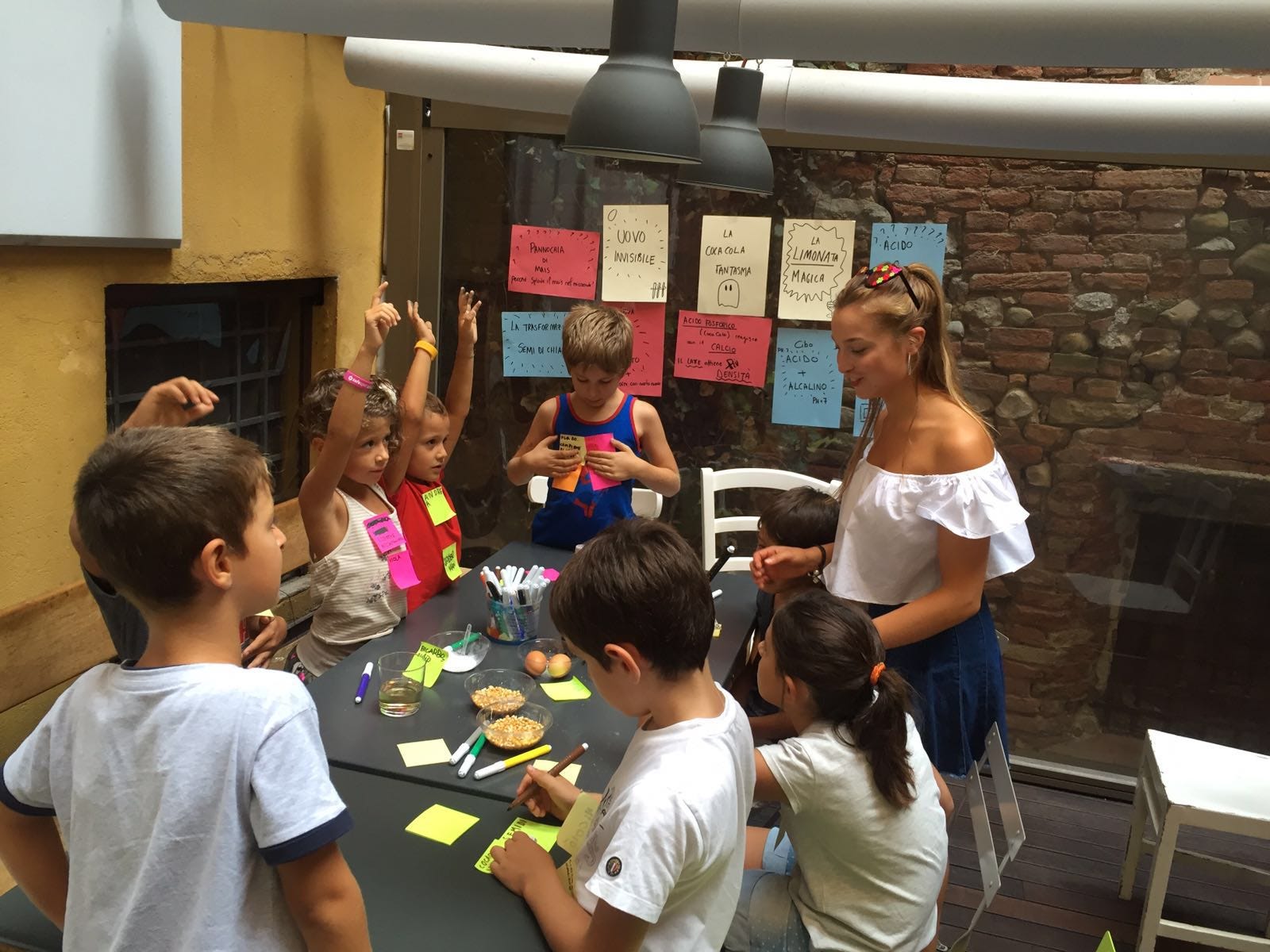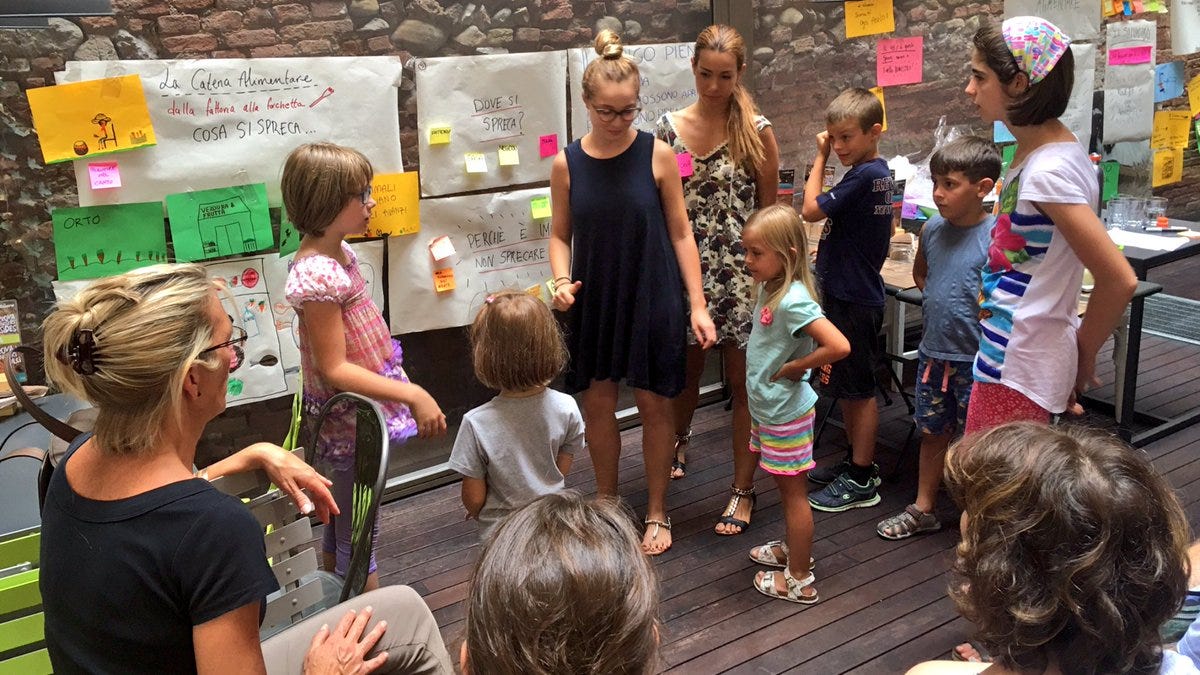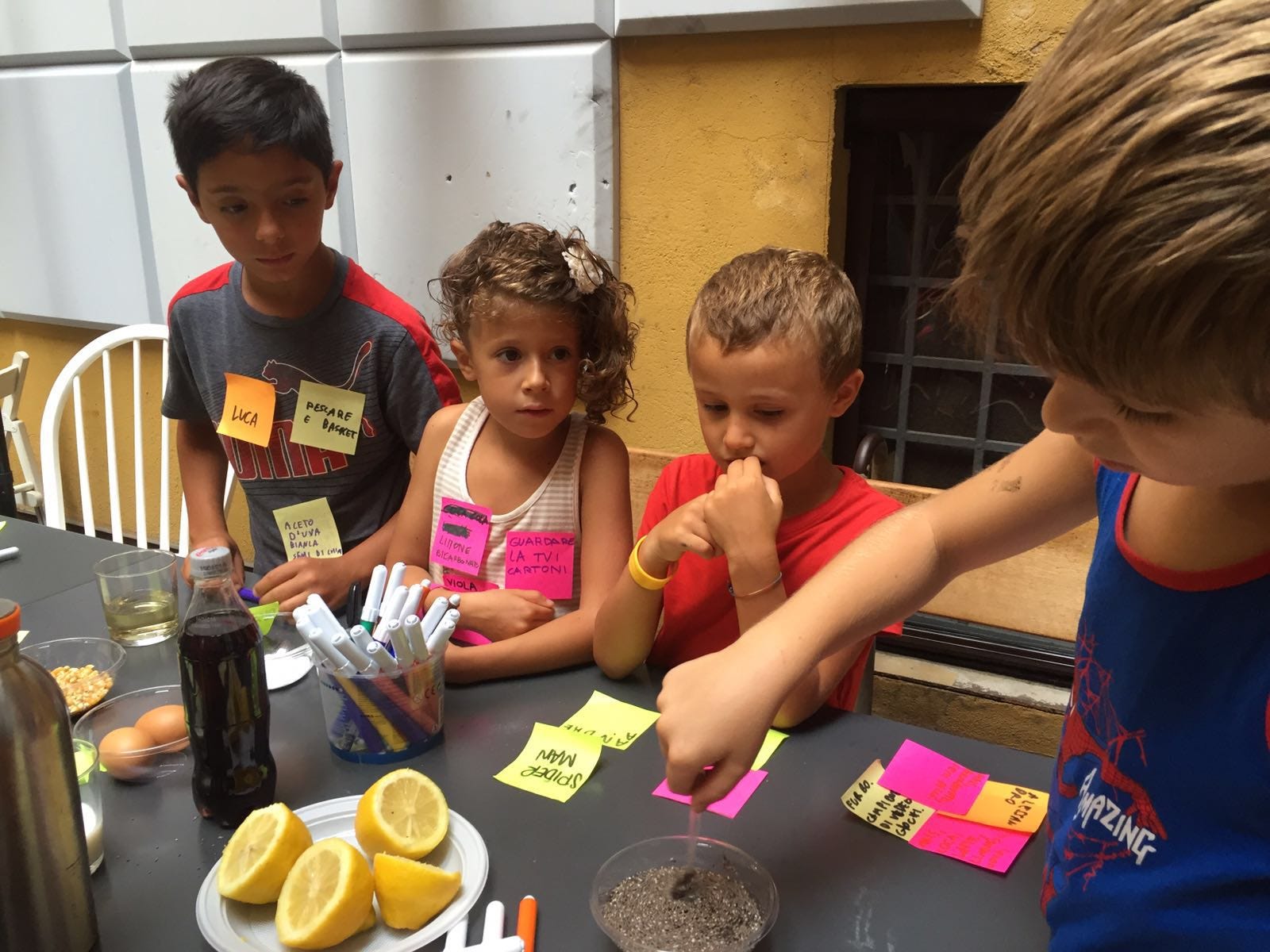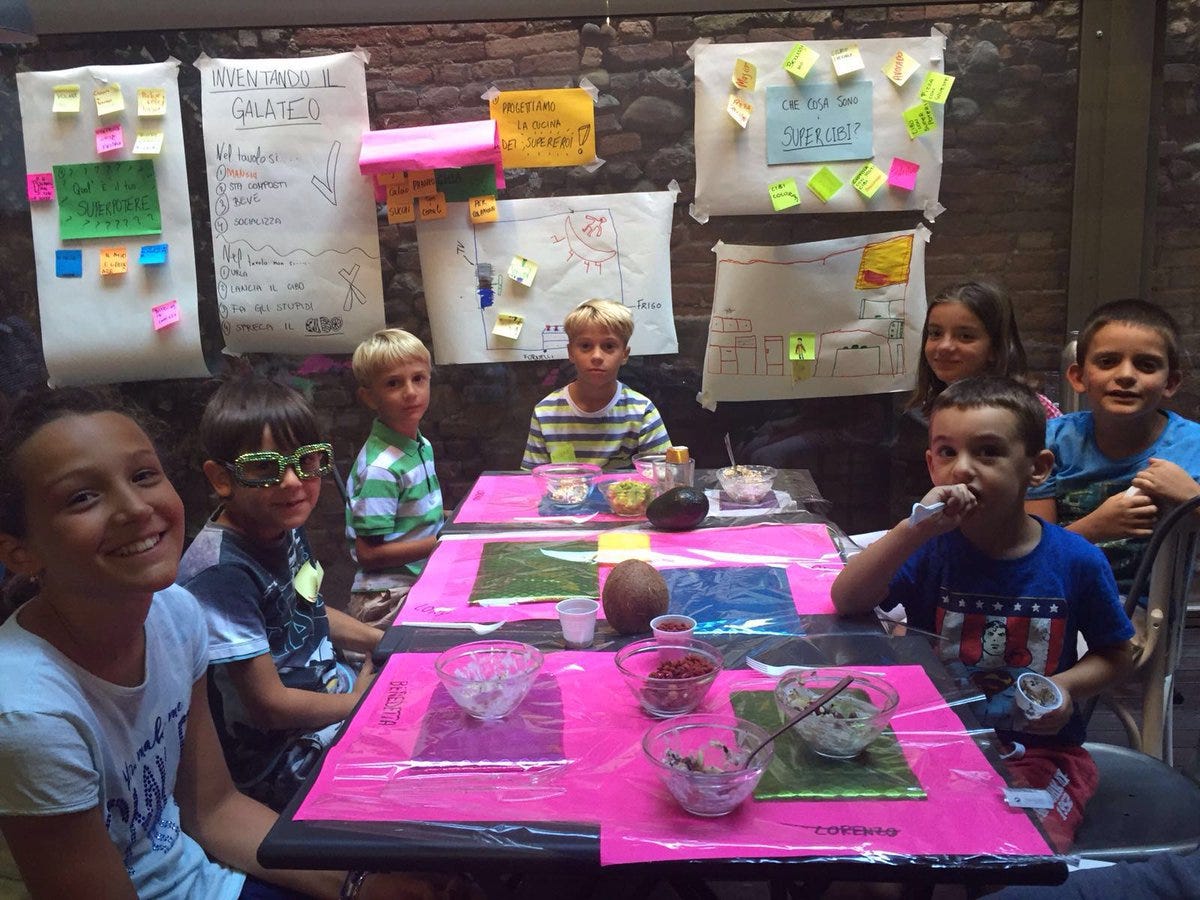This is how a lab at the Food Innovation Kids Lab starts. When worksheets are replaced by post-its and blank walls and real food and computers substitute books, something magical happens… a boundless creativity sparks in children! In the Kids Lab, learning happens through exploration and play. As the session starts, teachers do not ask them to repeat the multiplication table but to share with others their superpower. This is then useful for capturing each child’s’ talent and using it for the purpose of setting complementary team roles that support each other in finding a solution to a challenge that is given to them.

The Future Food Institute created the Kids Lab with the aim of proposing an innovative and standardized model of food education labs for the youngest food innovators starting from the age of five. In contrast with a traditional teaching method, these labs give kids the sense that they can make a change on each one of the discussed topics and the gaming approach captivates their attention. This sparks in kids the motivation and confidence to work hard in understanding and persevering in looking for solutions to the challenge. Moreover, they learn about food by experiencing it with the five senses and they love it!
The methodology is inspired by the Reggio Children philosophy, born in Reggio Emilia — Italy, that views children as competent, curious, full of knowledge and potential who approach obstacles with a unique lens, often coming up with solutions that are unperceived by adults. The Reggio approach encourages exploration from an early age, and innovation is inherent in their educational philosophy. Sharing this philosophy, the Kids Lab engages children in open-ended experiments so they can engage with food naturally and easily, inspiring in themselves a better relationship with food and in adults unprecedented inspiration and solutions to food problems at any level.

The Kids Labs also make use of the Seeds of Disruption map from the IFTFin Palo Alto and Design Thinking methodology from the d.school of the Stanford University to explore new solutions to existing problems throughout the whole value chain from how food is produced, manufactured, distributed, sold and consumed. Design Thinking empowers a solution oriented mindset from an early age, enables socialisation and community creating and boosts creativity through the use of alternative ways of expression. When kids are given the chance to invent the restaurant of the future, to find ways to combating food waste or finding a solution to the uneasy family cooking experience of nowadays, we are creating little problem-solvers with an underestimated potential of creating a more desirable future.
Kids have fun while learning and work collaboratively to prototype creative solutions to food-based problems, enabling a deeper understanding of what happens before food arrives to their plate. They come up with solutions such as placing a fridge in their neighborhood where leftovers and uneaten food can be shared with people in need and with animals; a restaurant that always provides a doggy-bag with the leftovers; new rules in the kitchen where kids are in charge and parents can enjoy and learn from them.
Kids point out that often in schools they learn about food by seeing very basic ingredients on a book and enjoy greatly being able to touch, smell and eat food they have never heard of before. Informatic researchers Sara Price and Yvonne Rogers wrote in the article“Let’s get Physical” that an approach which involves physical engagement creates an involvement and activeness in learning that passive listening or watching does not.

There is also an important spillover effect on parents: at the end of each session, the team presents what they have learned about a certain matter in the food sphere and the parents learn too! For example, parents were shocked when kids explained peanuts are legumes and discovered the superpowers of chia seeds, goji berries and oatmeal and most of all, that their children prefered eating for breakfast a superpower bowl full of these healthy ingredients than the pre-confectioned cereal they usually have. Parents perceive the value in having their children learn about food and highlight with resentment that surprisingly, food education is not part of the school curriculum.
The explorative play does not end when the lab is over! Home family learning is also an essential part of the project and children are encouraged to bond with their parents at home through cooking and sharing their acquired knowledge.

The Lab has been run by Beatriz, that with passion and great energy has been able to involve kids, parents and FFI fellows in this amazing dream: give a contribution to the ongoing Food Revolution to improve health and happiness of future generations, through their relationship with food.

